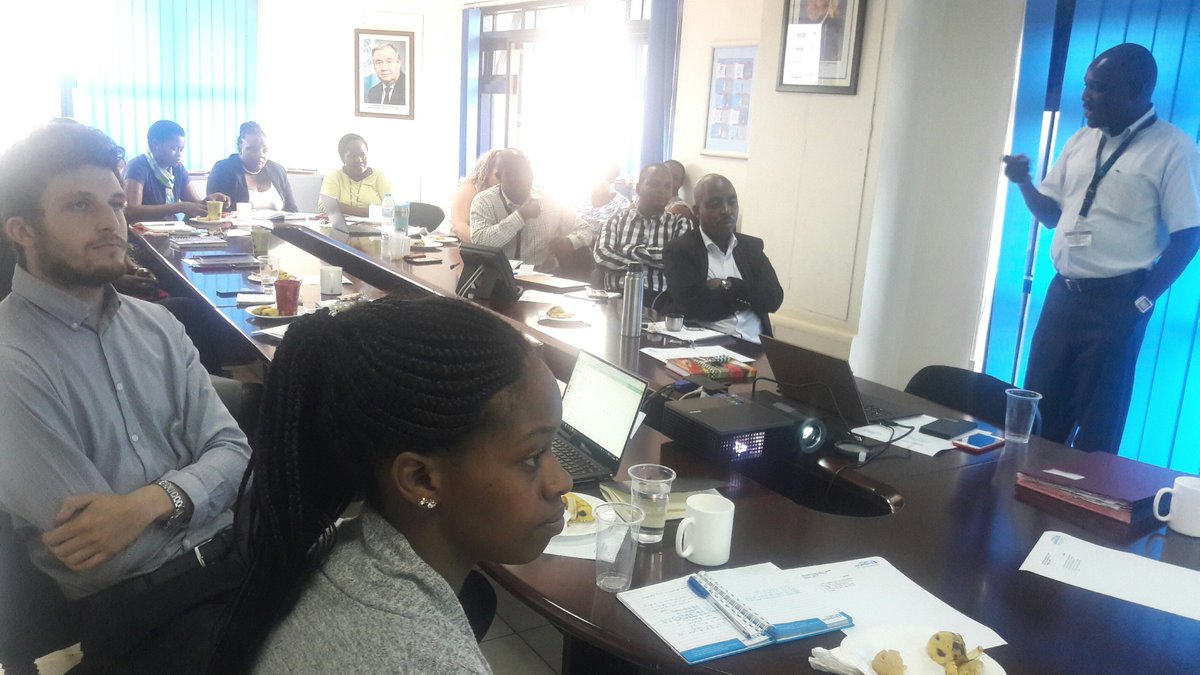The Uganda Community Polytechnic Certificate (UCPC) results released this morning show that girls beat boys in the vast majority of programmes previously dominated by males.
Speaking during the release of the results, the Uganda business and technical examinations board (UBTEB) executive secretary, Onesmus Oyesigye, said girls unprecedentedly secured a higher proportion of top grades.
“The female candidates dominated in general performance. In addition, they outpaced males in block laying and concrete practice, plumbing and pipe fitting, garment design and construction and food processing programmes,” Oyesigye said at the Ubteb offices in Ntinda.
For instance, in the certificate in garment design and construction, of the 571 females that sat for the exam, 77 passed with distinction, 361 credits and 71 with passes. Only three males passed with distinction of the 26 that registered for this programme.

A total of 4,647 candidates registered for the UCPC examinations from 113 accredited centres across the country. Of these, 4,283 (92.2 per cent) candidates sat for the 11th series of these examinations from November 10 to December 15, 2017 while 364 (7.8 per cent) were absent.
While presenting the results, Oyesigye said of the 4,283 candidates, 3,425 (80 per cent) successfully passed their programmes while 858 (20 per cent) have one or more subjects to improve upon their competences, before completing their various programmes.
Ubteb statistics indicate that the pass rate was impressive, with 10.5 per cent passing with distinction, 60 per cent with credits and 9.4 per cent with pass grades.
Whereas the general performance was good, there was a slight drop of 0.1 per cent from 80.1 per cent in 2016 to 80 per cent in 2017. He attributed the drop to poor performance in English and Mathematics, subjects that have continued to affect performance in most programmes.
“The mere fact that we are dealing with P7 leavers no matter where they study from; candidates faced an uphill task in comprehension and solving of small business mathematical problems,” Oyesigye told The Observer, adding that there are also inadequate teachers for the said subjects in Btvet institutions.
In her remarks, the chief guest and state minister for primary education, Rosemary Seninde, expressed pleasure to learn that girl-child enrolment had increased with the girls performing even better in “male-dominated” fields including plumbing and pipe fitting, block laying and concrete practice.
“I am so glad about the performance of female students. In most cases, many of our girl children have been shunning these programmes but they have now realised they can perform better than males,” Seninde said, while applauding Ubteb for conducting an examination free of leakage and malpractice.
She added that the ministry, in liaison with the private sector, will institute a programme of placement of graduates for internship/apprenticeship in various industries that will go a long way to exposing students on hands-on tasks that will produce ready products for the market.
In a bid to improve skills training, Ubteb chairperson Prof Venansius Baryamureeba advised tertiary institutions offering post-o-level certificate programmes to present their candidates for national assessment in accordance with the recent guidelines issued by the education ministry.
He commended Makerere University College of External Studies, Multitech Business School, St Lawrence, Kumi, Bishop Stuart, TEAM and Bugema universities for their recent positive response.
“All institutions that will not have registered with Ubteb by June 30, 2018 to assess its students will be forwarded to the ministry of education for action,” Baryamureeba said.
The number of Btvet institutions accredited as Ubteb examination centres has increased from 184 in 2011 to 557 in 2017.
The board expects to reach about 1,000 centres once institutions become compliant.

